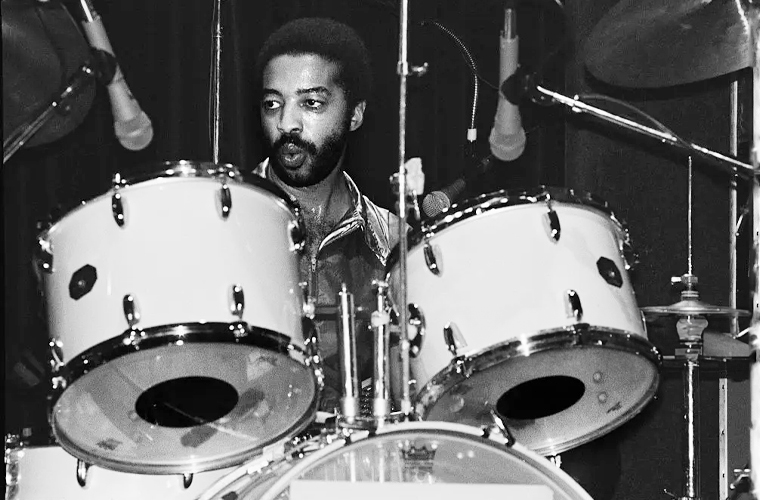Tony Williams, born in Chicago in 1945, is widely regarded as one of the most influential drummers in jazz history. His innovative approach to rhythm and his technical prowess have left an indelible mark on the genre, and his contributions continue to inspire and influence musicians to this day. Williams first gained recognition as a prodigious young talent, gaining attention for his exceptional skill and musicality at an early age. He began his professional career as a member of saxophonist Jackie McLean’s band, where he quickly established himself as a force to be reckoned with. It was during this time that Williams caught the attention of the legendary trumpeter Miles Davis, who would go on to become a pivotal figure in Williams’ career.
In 1963, at the age of just 17, Williams joined Miles Davis’ groundbreaking second great quintet, alongside pianist Herbie Hancock, saxophonist Wayne Shorter, and bassist Ron Carter. This collaboration would prove to be a defining moment in Williams’ career, as the group’s innovative approach to improvisation and their willingness to push the boundaries of traditional jazz would have a lasting impact on the genre.
During his time with Davis, Williams’ playing continued to evolve, as he embraced a more aggressive and dynamic style that set him apart from his contemporaries. His use of polyrhythms, complex time signatures, and explosive energy redefined the role of the drummer in jazz, and his influence can be heard in the work of countless drummers who followed in his footsteps. After leaving Davis‘ band in 1968, Williams went on to lead his groups and collaborate with a diverse range of musicians, including luminaries such as guitarist John McLaughlin and pianist Larry Young. He continued to push the boundaries of jazz, incorporating elements of rock and funk into his playing while maintaining a deep connection to the tradition of the genre.
Williams’ impact on the world of drumming extended far beyond his performances. His technical innovations, such as his use of open-handed playing and his development of new cymbal techniques, have had a lasting influence on drummers across all genres. His willingness to experiment and take risks has inspired generations of musicians to push themselves creatively and explore new possibilities within their playing.
Tragically, Williams’ life was cut short when he passed away in 1997 at the age of 51. However, his legacy lives on through his recordings and the countless musicians who continue to be inspired by his work. His influence can be heard in the playing of drummers across the spectrum of jazz and beyond, and his contributions continue to shape the evolution of the art form.
In recognition of his enduring impact on the world of music, Tony Williams was posthumously inducted into the Modern Drummer Hall of Fame in 2006. His legacy as one of the most influential drummers in jazz history is secure, and his innovative spirit continues to inspire musicians to reach new heights of creativity and expression.

